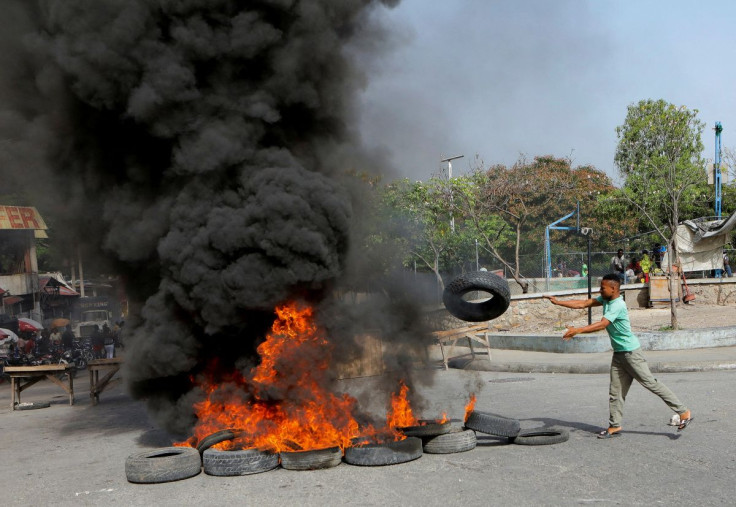Haiti Fuel Deliveries Resume Following Protests Over Shortages

Haiti's main fuel terminal was resuming operations on Thursday after nearly a week of gang violence that had forced the halt of deliveries and triggered protests in the Caribbean nation's capital.
The development signals at least some de-escalation of turf battles between rival gangs in the town of Cite Soleil, a town on the outskirts of Port-au-Prince that is part of the metropolitan area of the capital.
Rights activists say nearly 90 people have been killed since violence broke out last week and an entire neighborhood has been trapped without access to food or water.
Witnesses said some shots continue to ring out, and it remained unclear whether the rival gangs had halted hostilities.
The operator of the Varreux fuel terminal, which halted operations last week due to the violence, said on Twitter that one vessel carrying imported fuel had unloaded a cargo on Wednesday and a second was unloading on Thursday.
Trucks have started loading at the terminal, according to a source with knowledge of the situation.
The prime minister's office did not immediately respond to a request for comment.
National Human Rights Defense Network, a Haitian rights group, said in a report on Wednesday said that at least 89 people had been killed in the violence.
Pastor Jean Enock Joseph said on Tuesday that the Brooklyn neighborhood of Cite Soleil had been cut off by the gun battles, while Doctors Without Borders said the road leading to the neighborhood was littered with burning or decomposing bodies.
Gang violence has soared since the assassination last year of President Jovenel Moise, creating a political vacuum that criminal groups have taken advantage of to expand control over territory.
Gang wars have become more frequent, with activists in May saying one protracted confrontation killed nearly 150 people.
© Copyright Thomson Reuters 2024. All rights reserved.







